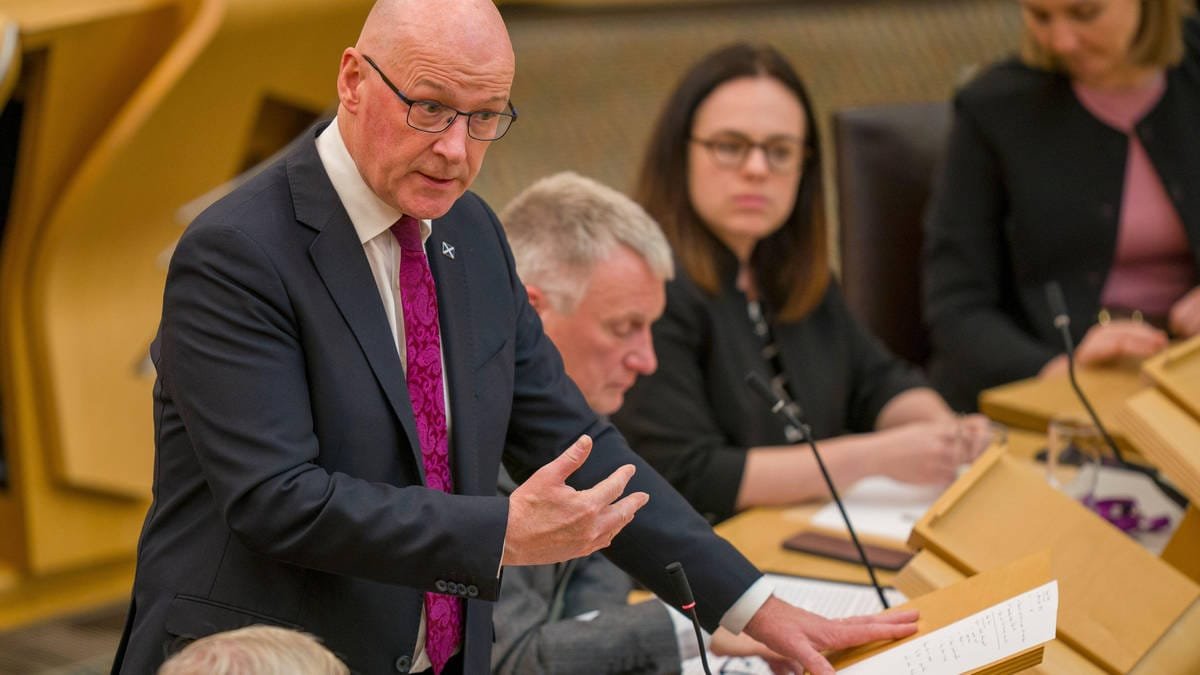Scotland’s Ethical Defence Funding Shift: Balancing Security and Humanitarian Values 🛡️
What’s Changed in Scotland’s Defence Policy? 📜
Scotland has introduced a bold, ethics-driven overhaul of its defence funding strategy. First Minister John Swinney announced a dual approach: pausing public funding to arms firms linked to Israel while lifting a long-standing ban on supporting munitions projects to address urgent security needs, particularly in response to the Ukraine crisis. This shift redefines the Scottish National Party’s (SNP) policy, combining a targeted arms boycott with a pragmatic easing of industry restrictions. 🚀
The policy requires defence companies seeking Scottish public support—via the Scottish Government, Enterprise Agencies, or the Scottish National Investment Bank—to prove their products are not used militarily by Israel. Meanwhile, the lifted munitions ban allows funding for projects aligned with UK and European security priorities, creating a new framework for ethical yet practical defence investments. ⚖️
How the Policy Works 🔍
The funding pause applies to companies with “plausible or prima facie evidence” of involvement in genocide, explicitly targeting Israel due to the humanitarian crisis in Gaza. Firms must provide assurances of non-involvement to qualify for grants, investments, or trade support. This reset in Scotland’s financial aid to arms firms ensures ethical oversight while enabling munitions support for other defence priorities, such as NATO supply chains. 🛠️
Policy Comparison: 2024 vs. 2025 📊
| Area | 2024 Stance | 2025 Stance |
|---|---|---|
| Funding to firms linked to Israel | Allowed, subject to general controls | Paused; firms must prove no military involvement with Israel |
| Support for munitions projects | Prohibited for public support | Allowed; ban lifted for security needs |
Why the Change? 🌍
Swinney emphasized the humanitarian crisis in Gaza and the need for accountability under international law as key drivers for the funding pause. At the same time, Europe’s worsening security environment—particularly Russia’s invasion of Ukraine—has pushed Scotland to support munitions production to strengthen supply chains. The policy balances ethical procurement with industrial resilience, avoiding “business as usual” amid global tensions. 🕊️
Humanitarian and Diplomatic Actions 🤝
Beyond the funding shift, Scotland is stepping up humanitarian efforts, including financial support for emergency medical care in Gaza and treatment for injured children in Scottish hospitals. The government has also called for recognition of Palestinian statehood and reduced trade facilitation with Israel, aligning the arms boycott with broader diplomatic and humanitarian goals. ❤️
Case Study: Clyde Munitions and New Opportunities ⚓
Earlier in 2025, a £2.5 million Scottish Enterprise grant for a submarine welding facility on the Clyde was blocked due to the prior ban on munitions funding, nearly derailing a key naval project. Under the new policy, such projects can now receive support if companies verify no military links to Israel or other states with genocide concerns. This change preserves jobs and timelines while maintaining ethical standards. 🔧
Timeline of Policy Impact ⏳
2024: Munitions funding ban blocks Clyde project
2025: Ban lifted, funding approved with ethical checks
Industry and Political Reactions 🗳️
Defence industry leaders welcome the lifted munitions ban for supporting NATO-aligned capacity, while campaigners praise the pause on Israel-linked funding as a step toward humanitarian accountability. However, some critics argue the policy risks being seen as symbolic politics, highlighting its divisive reception. 🗣️
Real-World Example: Avionics Supplier Compliance ✈️
A Scottish avionics manufacturer previously ineligible for munitions-related grants can now apply for innovation or capital support for NATO-aligned programs. The firm must provide export screenings, end-use assurances, and supply-chain attestations to confirm no components reach Israeli military contracts. Failure to comply triggers the funding pause, ensuring ethical procurement. 📋
What to Watch Next 👀
Key areas to monitor include how agencies define “plausible evidence” for genocide, the scope of attestation and audit requirements, and whether trade curbs extend to specific exhibitions or procurement missions. Tracking parliamentary scrutiny, industry shifts, and humanitarian disbursements will reveal the policy’s impact on ethical screening and defence delivery. 📈
Frequently Asked Questions ❓
What does the Scotland arms boycott decision do for funding eligibility?
It pauses new public grants and investments for defence companies whose products or services are supplied to Israel, requiring proof of non-involvement with the Israeli military before any support is considered.
How does the SNP munitions policy change affect defence manufacturing?
The government has lifted its long-standing prohibition on public support for munitions production, opening pathways for funding of compliant projects that bolster UK and NATO supply chains.
Is this a total funding ban on Israel arms suppliers across all government activity?
The pause targets new awards (grants, investments) and extends across government agencies; existing general operations are complemented by directions to reduce facilitation of trade with Israel.
How will Scotland financial aid to arms firms be screened under the new rules?
Applicants must demonstrate products are not involved militarily with Israel, with agencies applying due diligence tied to the “plausible evidence of genocide” threshold cited by ministers.
Does the policy include humanitarian actions alongside the Scotland arms boycott?
Yes, the shift is paired with humanitarian funding for Gaza medical capacity and treatment for injured children, aligning ethical funding controls with direct relief.
🌐 Explore More on Global Market Today
Dive deeper into the latest updates, insights, and expert analysis across our most popular categories.
Stay informed on business, economy, AI, and more – all in one place.
📈 Market
💼 Business
🏛️ Politics
🤖 Artificial Intelligence
🔧 Technology
₿ Cryptocurrency
🌍 Economy
💰 Personal Finance
⚡ Fintech Tools
Hindi Version
